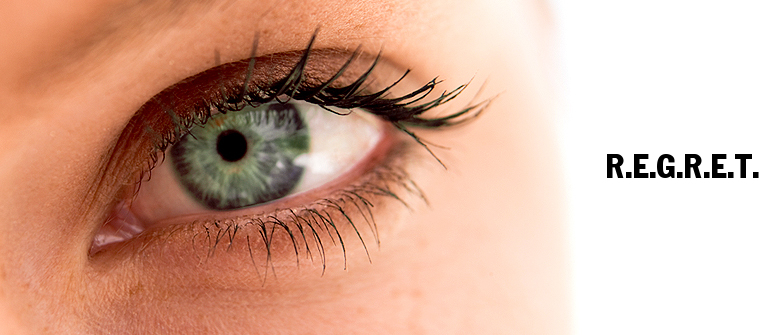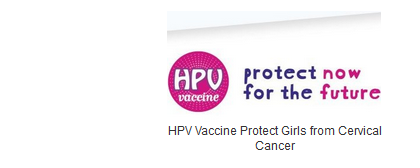






SanityCheck: How Proven are HPV Vaccine Benefits?
Martin Healy, Regret.ie, 12/09/2016
The following is a response to the Journal.ie article “FactCheck: No, the reported side effects of the HPV vaccine do NOT outweigh the proven benefits” published 11/09/2016.
In part 1 of a 3-part report, we provide a "SanityCheck" on the "FactCheck" author's conclusions regarding HPV vaccine effectiveness.
FactCheck Conclusion #1:
- “Repeated studies and clinical trials have shown HPV vaccines like Gardasil to be very effective in preventing the virus which leads to most cervical cancers”.
FactCheck also concludes that following Regret statement is a "misleading claim":
“The HPV vaccine will not save any lives on its own merit, as it only protects against 4 strains out of more than 100 HPV infections”.
SanityCheck:
All four efficacy studies cited in the FactCheck article are based on three doses (not two) and are thus invalid for the current situation in Ireland - here first year girls will only be given a total of two doses. Note that the current manufacturer PIL from the U.S. still states that all girls (regardless of age) require 3 doses to achieve the desired protection.
In addition, the studies cited by FactCheck do not demonstrate any proven benefit for preventing cervical cancer as they need to show duration of 15 years to contribute any effect and none of these studies show duration beyond 8 years.
However, assuming an idealized scenario (for discussion purposes) where 2 doses have the same protection as 3 doses, and with protection of indefinite duration (or a booster every 10 years), in that scenario we can still only expect a 10% reduction of HPV-related cervical abnormalities.
A co-author (Dr D. Harper) of the WHO study (1) cited by FactCheck in support of the vaccine summarises the limitations of the vaccine here:
“HPV vaccination reduces the possibility of their daughter having an abnormal Pap test by 10% if the vaccines have not waned by the time the young adolescent becomes sexually active . HPV vaccine efficacy must last at least 15 years to contribute to the prevention of cervical cancers”.
This is confirmed by government sponsored HPV Vaccine Technology Assessments such as this Expert Group report from Austria. They based their model on the following assumptions:
- both screening and vaccination occuring
- a booster after 10 years
- model calculated under best case assumptions
They report "Compared to screening only, screening plus vaccination of 12-year-old girls would result in a median reduction of 10% fewer new cancer cases and 13% fewer cervical cancer deaths under best case assumptions over 52 years in the overall female population".
Yet the WHO study claims, “Both vaccines have demonstrated efficacy of over 90% against persistent infection due to genotypes 16 or 18 in women who received 3 doses of HPV vaccine”.
How do we reconcile the over 90% efficacy cited in the WHO study with the drastically smaller figure of 10% predicted above? Indeed Merck clinical trials claimed up to 98% efficacy. This breakdown provided by the popular mainstream science publication “Discover Magazine” gives an interesting insight into how supposed benefits evaporate under closer inspection:
“To achieve the 98 percent efficacy claim, Merck excluded from analysis anyone who “violated” the study protocol. In other words, all real-world problems that arose were excluded from analysis. Problems like girls who refused to take a second or third shot after they became sick and (correctly or incorrectly) blamed the vaccine. Or doctors who incorrectly gave the vaccine to someone who shouldn’t have received it. While it’s worth knowing how effective the vaccine is when it’s used exactly as it should be, for a public-health decision, it’s not as relevant as its real-world effectiveness.
To Merck’s credit, they reported that when all women in the study were analyzed, the vaccine’s efficacy dropped to 44 percent. Still, 44 percent might be considered a smashing success when you’re talking about saving lives. Except for one thing: the numbers get worse. The 44 percent benefit included only those women with the two specific cancer-causing HPV strains found in the vaccine. But when the researchers looked at negative cervical changes from any causes, they found that changes occurred in unvaccinated women at a rate of 1.5 events per 100 person-years, while vaccinated women had 1.3 events—dropping the benefit to 17 percent.
Moreover, most of the cervical changes tracked by the researchers weren’t even indicative of cervical cancer in the first place. Most were innocent cellular abnormalities that either disappear entirely on their own, or never progress to cancer. In fact, when they looked more closely at advanced cervical changes most likely to progress to cancer versus more innocent changes that go away spontaneously, it was the innocent changes that accounted for the decline.
Whether Gardasil will reduce cervical cancer deaths in real-world conditions has simply never been answered. It might—but that would take a long-term study, and one that should be done before it’s widely promoted”.
End of Part 1.
Part 2 will SanityCheck FactCheck's conclusions on HPV vaccine safety.
Studies cited by FactCheck in support of HPV vaccine safety and effectiveness:
1. WHO Study: http://www.who.int/bulletin/volumes/85/9/06-038414/en/
2. Lu study on Efficacy and Safety - Review of 7 trials: http://www.ncbi.nlm.nih.gov/pmc/articles/PMC3034689/
3. Deleré study – The Efficacy and Duration of Vaccine Protection Against Human Papillomavirus (Review of 15 identified studies).
http://www.ncbi.nlm.nih.gov/pmc/articles/PMC4174682/
4. De Vincenzo , Long-term efficacy and safety of HPV vaccine. http://www.ncbi.nlm.nih.gov/pmc/articles/PMC4262378/#b32-ijwh-6-999 http://www.ncbi.nlm.nih.gov/pmc/articles/PMC4262378/table/t2-ijwh-6-999/

 If your child has suffered health issues that you think may have been triggered by Gardasil, and you wish to get in contact with other parents who have had a similar experience, please contact us at:
If your child has suffered health issues that you think may have been triggered by Gardasil, and you wish to get in contact with other parents who have had a similar experience, please contact us at: 